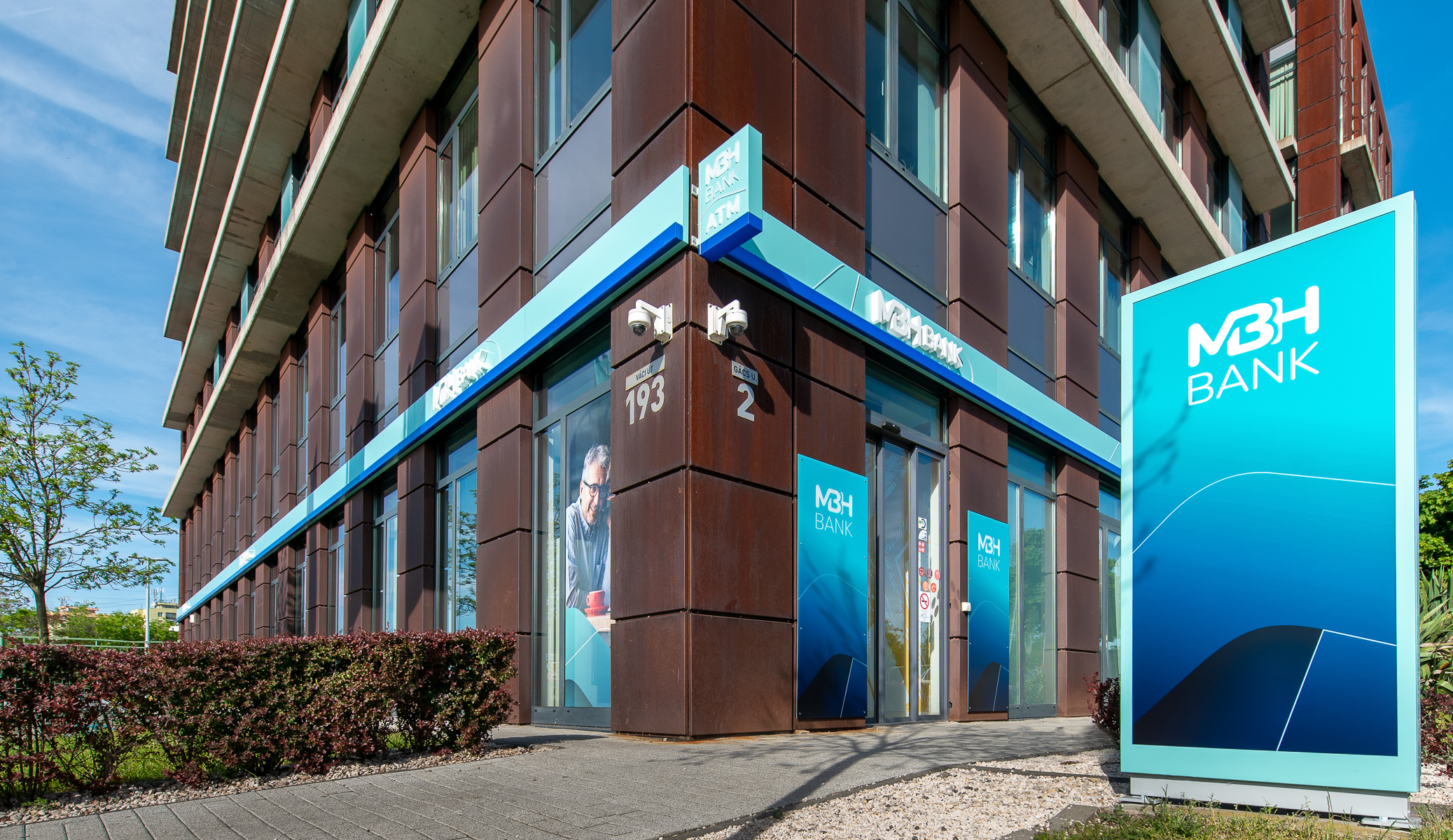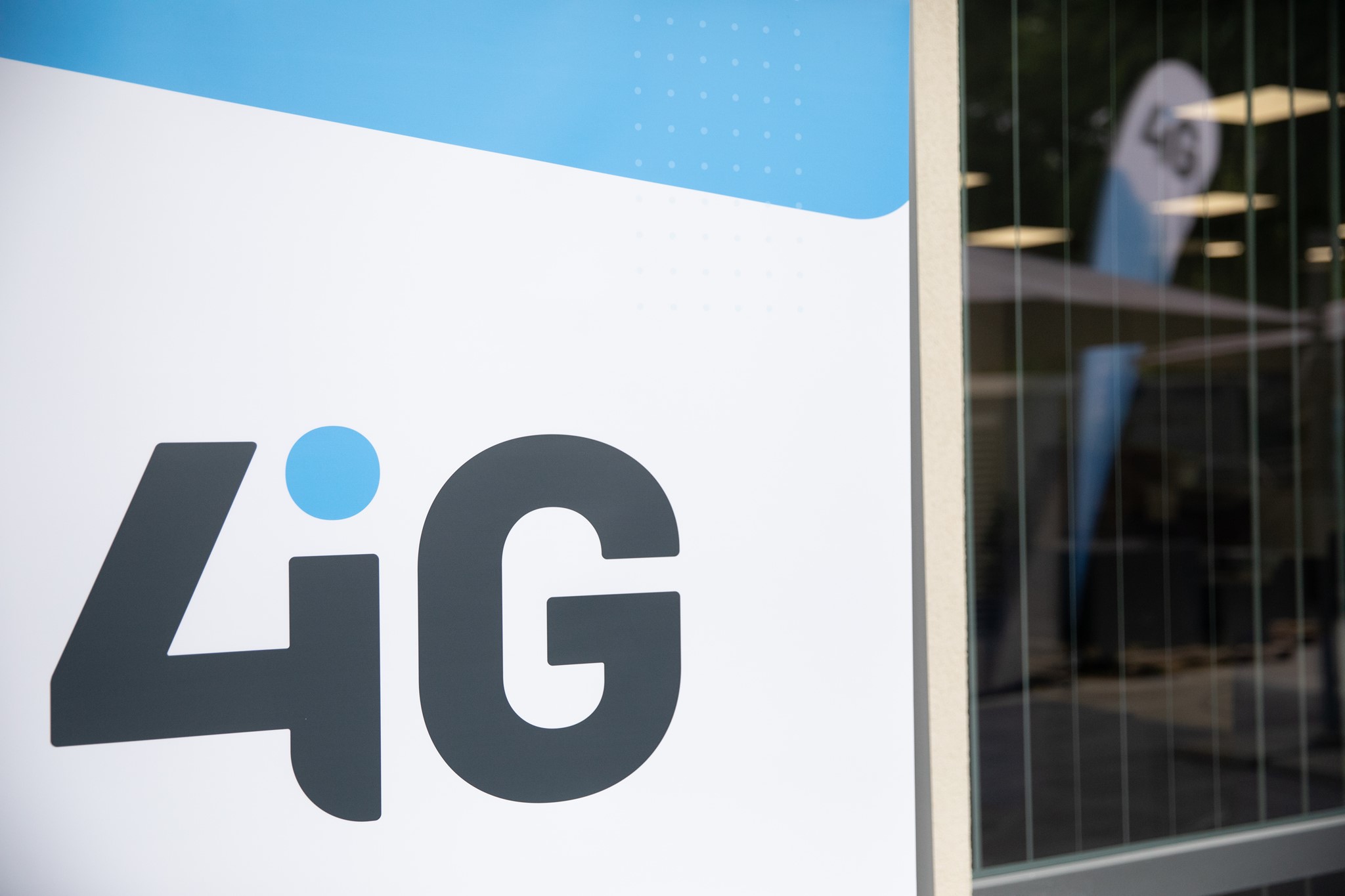State Dominates Transactions Market Once Again

Magyar Bankholding finally became MBH Bank this year, marking the end of the megamerger of three Hungarian banks into one, and launching a new highstreet brand.
The Hungarian state has been playing an active role in the acquisitions market for years, and 2023 also fits into this pattern. The largest was inevitably the Vodafone deal that closed at the beginning of the year, but there is an even more significant purchase in the pipeline.
The year 2023 kicked off with what could well be dubbed the “Deal of the Year,” namely, the acquisition of Vodafone Magyarország Zrt., the Hungarian business of U.K.-based telecom giant Vodafone Group Plc. On Jan. 9, after a lengthy process that had started in the previous year, the formerly state-owned Antenna Hungária Zrt. (a subsidiary of 4iG Nyrt. since 2021), Corvinus International Investments Zrt. (on behalf of the Hungarian State), and Vodafone Europe BV signed the agreement for the acquisition of 100% of the shares of Vodafone Magyarország. The value of the target company was set at HUF 660 billion.
With the deal, 4iG acquired 51% indirect controlling influence through Antenna Hungária, while the Hungarian State acquired a 49% stake in the second largest telecommunications company on the Hungarian market, behind Magyar Telekom but ahead of Yettel.
Big though it was, that wasn’t the Hungarian state’s only foray into the local telecommunications market: a few months later, it exchanged 19.5% of its Vodafone shares for 25% of Yettel (owned by PPF Telecom Group) and Cetin, which manages its network infrastructure.
It could do this because Antenna Hungária Zrt., when it was still state-owned, bought 25% of Telenor (Yettel’s previous name) for HUF 101.16 billion at the end of 2019. By exchanging ownership stakes worth HUF 125.7 billion, the state now has a minority stake in the two major mobile service providers on the market.
Although competition authority GVH indicated it was interested in looking into the matter, the government designated the Vodafone deal a matter of high national strategic importance, meaning GVH could not intervene.
In the meantime, 4iG was active in the Balkans: the two Albanian telecommunications companies acquired by 4iG in 2022 were united and have operated under the name One Albania since January this year.
4iG, one of the business interests of Gellért Jászai, informed its shareholders on the website of the Budapest Stock Exchange on Feb. 24 that it had increased its share in Israeli satellite operator Spacecom from 9.538% to 20% with a capital increase. 4iG bought its original stake in the company in October 2022. Jászai, incidently, took control of 4iG in June 2019 when he acquired a 40% stake from billionaire businessman Lőrinc Mészáros, a childhood friend and key ally of Prime Minister Viktor Orbán.

The “Deal of the Year” may well have come right at the beginning, with the acquisition of Vodafone Hungary.
Money Matters
Hungary’s largest retail bank, OTP, continued to explore international market opportunities in 2023: in June, it entered the Central Asian region by acquiring majority ownership of Uzbekistan’s Ipoteka Bank. With the transaction, OTP Bank Group became the first foreign player in the Uzbek bank sector. The initial step in the acquisition was completed in the summer when OTP bought 75% of the shares owned by the Uzbek Ministry of Economy and Finance. The remaining 25% will be purchased in the second step, after about three years.
The Hungarian banking sector also saw continued state activity, with the final steps of establishing the Hungarian bank holding MBH occurring in the spring. On April 30, MKB Bank and Takarékbank became one and were reborn as MBH Bank. The merger process had been going on for three years, during which Takarékbank’s member organizations were merged, and Budapest Bank (part of GE Capital until it became state-owned in 2015) was subsumed into MKB Bank.
With the merger, Hungary’s second largest purely Hungarian-owned financial institution (as noted above, OTP Bank is the leader) was created; the total balance sheet exceeds HUF 10.6 trillion, and the number of retail and corporate customers is around two million.
MBH Bank continued its expansion toward the end of this year: in November, it announced that it would acquire a 76.35% stake in Fundamenta. The transaction is expected to close in the first half of 2024, after which Fundamenta will operate as a consolidated subsidiary of MBH Bank but remain an independent entity with its own brand name and company management.
Another announcement stirred the bank sector in November: Erste Group is repurchasing a 15% stake in its Hungarian subsidiary Erste Bank Hungary Zrt. from the 100% state-owned Corvinus International Investment Zrt. The Ministry of Economic Development has stated that the proceeds from the sale, put at approximately HUF 69 bln, will be used to finance the purchase of Budapest Airport.

Budapest Airport got a new CEO this year. Could Budapest Ferenc Liszt International Airport get a new owner, the state, next year?
Flying High
Speaking of the latter, the government has been laying the groundwork for buying back the operator of the Budapest Ferenc Liszt International Airport for some time now. Although the government is quite secretive about the details, Minister of the Prime Minister’s Office Gergely Gulyás said at the end of November that the necessary funds for the airport purchase were available, and the transaction could be completed within weeks. Hungary plans to buy the airport with the French company Vinci Airports, which would own a 49% stake, with the state getting 51%.
As for the funding, apart from the sum coming from selling its stake in Erste Bank, the state also got rid of its 35% stakes in two insurance companies. As announced in November, the state would reduce its ownership share in the Hungarian business branch of the Vienna Insurance Group, in other words, insurance companies Alfa and Union, from the previous 45% to 10%.
However, as the airport deal will be pricey, additional funds would still be needed, with possible sources to tap being issuing foreign currency bonds or taking a loan from Vinci Airports.
Insurance Market Consolidation
Another insurance deal the Hungarian state secured was much quicker than the airport purchase has proved to be: The state closed a deal to buy a 66.9% stake in Magyar Posta Életbiztosító Zrt. in April. In September, it was announced that Corvinus International Investment would sell its 66.9% share of the insurance company. The government had previously declared that it did not aim to retain its majority ownership in Magyar Posta Életbiztosító Zrt. and Magyar Posta Biztosító Zrt. in the long term. The temporary ownership aimed to promote the consolidation of the insurance market and maximize the state’s ownership value, it said.
Rolling Ahead
Hungary’s oil and gas giant MOL has stepped into the logistics sector. At the beginning of December, it signed an agreement with Indotek Group to purchase 15% of Waberer’s. At the same time, MOL and Waberer’s entered into a strategic cooperation agreement, with which they plan to strengthen their business cooperation in complex logistics services, alternative fuels, energy efficiency developments and the green energy transition.
The ownership structure of Waberer’s has changed significantly in the past period. This is primarily due to István Tiborcz, who has considerable influence in the company through BDPST Group, which he owns. His personal share and that of BDPST now reach 52%.
Trevelin Holding Zrt., which is linked to Dániel Jelinek, CEO and majority shareholder of the Indotek Group, currently has a 28.9% stake, 15% of which would go to MOL, with the remaining shares to be sold through an investor service provider.
The funds released by the sale of the ownership share would enable the financing of further domestic and international transactions of the Indotek Group, the company commented on the transaction.
Earlier this year, MOL closed the acquisition of Alteo Group. The deal was announced last December, and the consortium led by the Hungarian oil company now holds a 73.8% stake in the renewable energy utility company.
Also in the first quarter of the year, it was announced that the MOL Group was selling its 39 gas stations in Slovenia to meet the conditions for EU approval of the acquisition of a 92.25% stake in OMV Slovenija. On March 9, the MOL Group signed a sales contract with Shell for the stations.
It’s All in the Books
The Hungarian book and publishing market has also become increasingly state-dominated. The state-owned Matthias Corvinus Collegium (MCC) already had a minority stake in Libri Group, which it acquired in 2021. However, in June, it was announced it had increased its ownership in the company to 98.41%.
In another deal, Jellinek’s Indotek Group bought 47% of the French retail chain Auchan’s domestic hypermarket business and 100% of the so-called Korzo business. Although it was announced two years ago, the transaction was only closed in October 2023.
The e-commerce market saw an important deal in September: Jófogás and several online classified ad sites are now under Hungarian ownership. The founders of Extreme Digital and the owner of Ingatlan.com are jointly buying the Hungarian portfolio of the exiting Adevinta. Through the acquisition, a Hungarian online group will be created, which should be able to compete in the domestic market with increasingly active regional, overseas and Far-Eastern actors, the buyers said in a joint statement following the announcement of the deal.
Message to Construction Market
The appetite of Hungary’s third-richest person, the aforementioned Lőrinc Mészáros, must have been satisfied with a food market transaction. Talentis Agro Zrt., part of the Mészáros Group, bought Croatia’s largest producer and exporter of apples and nectarines. Through the transaction, Talentis Agro Zrt. and MKB Magántőkealap jointly acquire a 100% ownership share in the Croatian Rabo d.o.o. No further details of the acquisition were announced.
Opus Global Nyrt., another element of the Mészáros business empire, announced a deal on the construction market. It increased its stake in subsidiary Viresol Kft. by purchasing a 33.3% stake in Duna Aszfalt Kft. on March 31.
International players active in the Hungarian construction market received a strong message from Minister of Construction and Investment János Lázár. Speaking at a conference, he said that the foreign cement factories in Hungary would do better if they sold their domestic businesses because it is unthinkable that the Hungarian construction industry would not take part in the EUR 10 billion expansion of the Paks nuclear power station.
It is not unimaginable, therefore, that construction sector deals will largely dominate next year’s transactions market. Nonetheless, in July, the Talentis Group of Mészáros had already signed a letter of intent securing exclusive negotiation rights with Lukavac Cement d.o.o., owned by Austrian Asamer Baustoffe AG., about its acquisition.
This article was first published in the Budapest Business Journal print issue of December 15, 2023.
SUPPORT THE BUDAPEST BUSINESS JOURNAL
Producing journalism that is worthy of the name is a costly business. For 27 years, the publishers, editors and reporters of the Budapest Business Journal have striven to bring you business news that works, information that you can trust, that is factual, accurate and presented without fear or favor.
Newspaper organizations across the globe have struggled to find a business model that allows them to continue to excel, without compromising their ability to perform. Most recently, some have experimented with the idea of involving their most important stakeholders, their readers.
We would like to offer that same opportunity to our readers. We would like to invite you to help us deliver the quality business journalism you require. Hit our Support the BBJ button and you can choose the how much and how often you send us your contributions.











